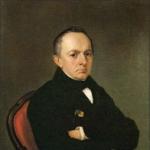Approximate topics of the final essay 2017-2018 (list). Direction "Aims and means".
Can it be argued that in war all means are good?
Does the end justify the means?
How do you understand the saying: "The game is not worth the candle"?
Why is it important to have a purpose in life?
What is the goal for?
Do you agree with the statement: “A person who certainly wants something forces fate to give up”?
How do you understand the saying: “When the goal is reached, the path is forgotten”?
What goal brings satisfaction?
Confirm or refute A. Einstein's statement: "If you want to lead a happy life, you must be attached to the goal, and not to people or things"?
Is it possible to achieve a goal if the obstacles seem insurmountable?
What qualities should a person have in order to achieve great goals?
Is the saying of Confucius true: "When it seems to you that the goal is unattainable, do not change the goal - change your plan of action"?
What does "great goal" mean?
Who or what helps a person achieve a goal in life?
How do you understand the saying of O. de Balzac: “In order to reach the goal, one must first of all go”?
Can a person live without a purpose?
How do you understand the statement of E.A. According to “No transport will be passing if you don’t know where to go”?
Is it possible to achieve a goal if everyone is against you?
What is the result of not having a purpose in life?
What is the difference between true and false purpose?
How is a dream different from a goal?
What is the danger of an aimless existence?
How do you understand the saying of M. Gandhi: "Find a goal, resources will be found."
How to reach the goal?
Do you agree with the statement: “He walks faster who walks alone”?
Is it possible to judge a person by his purpose?
Is it possible to justify the great goals achieved dishonestly?
How does society influence the formation of goals?
Do you agree with A. Einstein's statement: "No goal is so lofty as to justify unworthy means to achieve it"?
Are there unattainable goals?
How do you understand the words of J. Orwell: “I understand how; I do not understand why"?
Can a good goal serve as a cover for base plans?
Do you agree with the statement of A. Rand: “Only the one in whom aspirations have died out is lost forever”?
In what situations in life does the achievement of a goal not bring happiness?
What is a person capable of who has lost his purpose in life?
Does achieving a goal always make a person happy?
What is the purpose of human existence?
Do I need to set "unattainable" goals?
How do you understand the phrase "to go over the heads"?
What is the difference between a "momentary desire" and a "goal"?
How are the moral qualities of a person related to the means that he chooses to achieve his goals?
How do you understand the statement of L. da Vinci: “The one who aspires to the stars does not turn around”?
List of literature for preparation for the final essay. "Aims and Means".
Jean-Baptiste Moliere "Tartuffe"
Jack London " "
William Thackeray "Vanity Fair"
Ayn Rand "Atlas Shrugged"
Theodore Dreiser "The Financier"
M. A. Bulgakov " and " , "Dog's heart"
I. Ilf, E. Petrov "Twelve chairs"
V.A. Kaverin "Two Captains"
F. M. Dostoevsky"Crime and Punishment", "The Brothers Karamazov", "Idiot"
A. R. Belyaev "Professor Dowell's Head"
B. L. Vasiliev"And the dawns here are quiet"
Winston Groom "Forrest Gump"
A.S. Pushkin"Captain's daughter",
"Mozart and Salieri"
J. Tolkien "The Lord of the Rings"
O. Wilde "The Picture of Dorian Gray"
I. Goncharov« »
I.S. Turgenev"Fathers and Sons"
L.N. Tolstoy"War and Peace"
M.A. Sholokhov "The Fate of Man"
D.S. Likhachev "Letters about the good and the beautiful"
A.P. Chekhov ""
R. Gallego "White on black"
O. de Balzac "Shagreen leather"
I.A. Bunin"Sir from San Francisco"
N.V. Gogol
"Overcoat"
,
« Dead Souls»
M.Yu. Lermontov
"Hero of our time"
V.G. Korolenko "The Blind Musician"
E.I. Zamyatin "We"
V.P. Astafiev "King fish"
B. Polevoy "The Tale of a Real Man"
E. Schwartz
"The Dragon"
A. Azimov "Positronic Man"
A. de Saint-Exupery "The Little Prince"
The problem of ends and means comes up frequently. It defines the principles of a person shows his true plans. To understand the essence of these concepts, you need to analyze the issue in more detail.
The goal is what we want. It can be of any scale. We call the goal the desire that we want to realize in the near future. Means are the methods by which we will achieve the goal.
For example, if our goal is to write a good final essay, then we need to choose one of the means - either copy the work from the Internet, or read a few good books and put our thoughts on paper. The first option attracts more, as it does not require much effort. In life, everything happens exactly the same.
To achieve any goal, we have good means and bad ones.
In Dostoevsky's novel "Crime and Punishment" the main character painted his philosophy, his goals. He quickly determined that the best remedy was murder. Own ideas helped to justify such actions in my head.
In Gogol's Dead Souls, Chichikov wanted to get rich. This was his main goal. He chose a cunning and immoral means. He bought lists of already dead peasants in order to pass them off as living.
What means we choose to achieve the goal determines our personality. Therefore, one must always make a careful decision.
Updated: 2017-09-05
Attention!
Thank you for your attention.
If you notice an error or typo, highlight the text and press Ctrl+Enter.
Thus, you will provide invaluable benefit to the project and other readers.
The problem of ends and means in modern world rises very frequently. It also rises in the literary works of our time, and in past centuries this topic was also touched upon. famous classics working in different genres. To understand the essence of these concepts, you need to delve into them, to catch the relationship between them.
A goal is what we want, what we aspire to. It comes in all sizes. The goal is our desire, which we realize to the best of our ability. But the means are the methods by which we are going to achieve our goals.
For example, if our goal is to write a good final essay, then we must choose one of the means - either copy the finished work from the Internet, or do it all ourselves: read a few good books and put our thoughts on paper. The first option, of course, is much simpler, since it does not require much effort, but the second one is more successful in every sense. In life, everything happens in much the same way. To achieve our goal, we have good means and bad ones.
I recall Dostoevsky's novel Crime and Punishment, in which the protagonist described his philosophy and his goals. He decided that the best remedy was to kill. Own ideas helped to justify such actions in my head.
In Gogol's famous work Dead Souls, the main character, Chichikov, wanted to get rich. This was the purpose of his life. He chose a rather cunning and immoral means. He bought lists of already dead peasants in order to pass them off as living.
From what means we choose to achieve the goal, our personality depends. Therefore, decisions should always be made with extreme care. Do not be lazy, shift everything onto other people's shoulders, because our future depends on ourselves, on our goals and the means that we choose to achieve them!
Together with the article “Essay on the topic “Aims and Means” they read:
(ratings: 1, average: 5.00 out of 5)
Every person in life sets small and big goals. The older we become, the more clearly we imagine what we want to achieve in professional and personal life. But people choose different ways to achieve their goals. Some are honest and direct, others go roundabout ways, others step over people, do not hesitate to commit meanness. Which path is harder and which is easier? Of course, it is always more difficult to achieve your goal honestly and directly. But overcoming difficulties, a person becomes only stronger and stronger.
The question of goals and means of achieving them has always interested writers and therefore is reflected in many works of fiction. Let's turn to examples.
In A. Aleksin's story "Mad Evdokia", the image of a teacher, a class teacher is created. Evdokia Savelyevna sometimes seems ridiculous and ridiculous, does not pay attention to how she is dressed. But she strives for one thing: for her students to grow up good people, and for this it is not necessary to be the most successful. When they wanted to arrange an exhibition of the talented Olenka's works at the school, she suggested that other students also show their works. Mad Evdokia, as they called her in the Olenka family, invited ordinary people of various professions to meet with the guys in order to show the children that in any business a person can become a master, be useful. We also learn about her that during the war years, risking her life, she hid wounded soldiers in her house. Creating the image of this heroine of the story, the author wants to emphasize that the goal of the teacher is not just to give knowledge, but to educate his students so that they absorb all the best and grow up as worthy people.
B. Polevoy's book "The Tale of a Real Man", which is based on a true life story, teaches us to set important goals for ourselves and strive to achieve them. The action takes place during the war. Main character- pilot. His plane was shot down during air combat, but Meresyev remained alive and even got to the people. Doctors failed to save his legs - the feet were amputated. Of course, there was everything: pain, despair. But then a goal appeared: to return to duty, again rise into the sky and fight the enemy. Meresyev again, overcoming pain, learned to walk, first on crutches, then prostheses appeared. He began not only to walk, but also to dance. He achieved a return to the flight regiment, rose into the sky, and then continued to fight for the Motherland. By what means did the hero of the story achieve his goal? These means are physical education, training, learning to walk on prostheses. But that's not the point. Because Meresyev achieved everything thanks to perseverance, willpower, and the desire to return to the ranks again. The story of B. Polevoy helped many people, taught them not to give up, to fight to live life to the fullest.
Reflections on this topic helped me understand how important it is to achieve everything in life on my own, to go forward despite the difficulties, not to give up, set goals for myself and strive to achieve them in an honest way.
Final essay on literature 2018. Theme of the final essay on literature. "Aims and Means".
.
FIPI comment:"Concepts this direction are interrelated and allow you to think about a person’s life aspirations, the importance of meaningful goal setting, the ability to correctly correlate the goal and the means to achieve it, as well as the ethical assessment of human actions. Many literary works feature characters who deliberately or mistakenly chose unsuitable means to implement their plans. And it often turns out that a good goal serves only as a cover for true (lower) plans. Such characters are opposed by heroes for whom the means to achieve a lofty goal are inseparable from the requirements of morality.
Consider the concepts of "goal" and "means" from different angles.
1. Purpose as a fundamental part of human life. About the role and importance of having a goal in a person’s life, about its absence, about a person’s striving for heights, about achievements and about a goal as an engine of progress, about self-realization, great discoveries that are possible only thanks to a goal, about obstacles on the way to a goal, about a goal as a continuous process, as well as about what and who helps a person on the way to his goals.
2. Goals are different(true, false, great, vile, unattainable, selfish) One can speculate about the differences between goals and dreams, as well as about how a person’s goals are connected with his personality. What leads to the pursuit of certain goals.
3. Does the end justify the means? Here one can speculate about whether great goals achieved by dishonest means can be justified, about the importance of human life, about the methods of achieving the goal, and about the ethical evaluation of methods and means to achieve the goal.
Target- this is an imaginary peak, individual for each person, to which he aspires, and tries to fulfill for this all the necessary conditions, requirements, duties that depend on him. From the point of view of philosophy, the goal is a necessary condition for life, both for humans and for other organisms.
Synonyms: intention, end, task, task, plan, plan, project, calculation, target; meta, types, end, dream, ideal, aspiration, object (of the sweetest dreams), so that; end in itself, intent, ultimate dream, highest goal, landmark, intention, telos, meaning, setting, purpose, goal setting, function, mission, fireball, dream-idea
Means- technique, method of action to achieve something. or something that serves a goal, necessary to achieve, carry out smth.
Synonyms: way, possibility, method; tool, device, weapon; panacea, tool, system, path, asset, resource, condition, method, recipe, drug,
Quotes for the final essay 2018 in the direction "Aims and means".
A person who certainly wants something forces fate to give up. (M.Yu. Lermontov)
Man must learn to obey himself and obey his decisions. (Cicero)
When the goal is reached, the path is forgotten. (Osho)
The meaning of life is those goals that make you appreciate it. (W. James)
Perfect means for obscure ends are a characteristic feature of our time. (A. Einstein)
High goals, even if unfulfilled, are dearer to us than low goals, even if they are achieved. (I. Goethe)
If you want to lead a happy life, you must be attached to a goal, not to people or things. (A. Einstein)
You cannot change the direction of the wind, but you can always raise the sails to reach your goal. (O. Wilde)
Find a goal, resources will be found. (M. Gandhi)
If you are heading towards the goal and stop along the way to throw stones at every dog that barks at you, you will never reach the goal. (F.M. Dostoevsky)
The weaker and simpler people are best judged by their characters, the more intelligent and secretive by their goals. (F. Bacon)
It's never too late to step out of the crowd. Follow your dream, move towards your goal. (B. Shaw)
When it seems to you that the goal is unattainable, do not change the goal - change your plan of action. (Confucius)
No end is so lofty as to justify the unworthy means to achieve it. (A. Einstein)
We must set ourselves tasks above our strength: firstly, because you never know them anyway, and secondly, because forces appear as you complete an unattainable task. (B. L. Pasternak)
Ask yourself, do you crave this with all the strength of your soul? Will you live to see the evening if you don't get this thing? And if you are sure that you will not live, grab it and run. (R. Bradbury)
To reach the goal, you must first of all go. (O. de Balzac)
A person must have a goal, he cannot do it without a goal, for that reason is given to him. If he does not have a goal, he invents it... (A. and B. Strugatsky)
If you want to achieve the goal of your aspiration, ask more politely about the road you have lost. (W. Shakespeare)
I understand HOW; I do not understand why. (J. Orwell)
If you want to achieve a goal, don't try to be subtle or smart. Use rough tricks. Hit the target right away. Come back and hit again. Then hit again, with the strongest blow from the shoulder. (W. Churchill)
No transport will be passing if you do not know where to go. (E.A. Poe)
The one who aspires to the stars does not turn around. (L. da Vinci)
Life goes breathless without an aim. (F. M. Dostoevsky)
There are few unattainable things in the world: if we had more perseverance, we could find a way to almost any goal. (F. de La Rochefoucauld)
Some Jesuits say that every means is good, if only to achieve the goal. Not true! Not true! With feet defiled by the dirt of the road, it is unworthy to enter a clean temple. (I.S. Turgenev)
He walks faster who walks alone. (J. London)
Life reaches its peaks in those moments when all its forces are directed towards the implementation of the goals set for it. (J. London)
High goals, even if unfulfilled, are dearer to us than low goals, even if they are achieved. (Goethe)
At some second of the way, the target begins to fly at us. The only thought: do not evade. (M.I. Tsvetaeva)
The intention of a warrior is stronger than any obstacles. (K. Castaneda)
Only the one in whom the aspirations have died out is lost forever. (A. Rand)
It is much better to do great deeds, celebrate great victories, even if mistakes happen along the way, than to stand in the ranks. ordinary people who do not know either great joy or great misfortune, living a gray life, where there are neither victories nor defeats. (T. Roosevelt)
Not a single person lives without some goal and striving for it. Having lost purpose and hope, a person often turns into a monster out of anguish... (F.M. Dostoevsky)
A person grows as his goals grow. (I. Schiller)
If there is no goal, you do nothing, and you do nothing great if the goal is insignificant. (D. Diderot)
Seek what is above what you can find. (D.I. Kharms)
Nothing calms the spirit so much as finding a solid goal - a point to which our inner gaze is directed. (M. Shelley)
Happiness lies in the joy of reaching a goal and the thrill of creative effort. (F. Roosevelt)




















